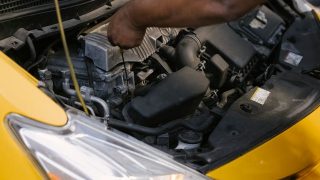
- Continuous learning is crucial for mechanics to keep pace with evolving automotive technologies and repair methods.
- Online platforms offer accessible resources for keeping up-to-date with industry trends and techniques.
- Developing high-tech tools does not diminish the importance of human skills in mechanical workshops.
- Proper tools and equipment are foundational for achieving vehicle repair and maintenance excellence.
- Mechanics should invest in the right technology and stay informed about advancements to maintain efficient workshops.
The automotive repair and maintenance world has come a long way from the greasy garages of yesteryear. Advancements in vehicle technology and the rising complexity of the modern automobile have made it more critical than ever for mechanics and workshop owners to equip themselves with the latest tools and equipment. From the tried and tested wrenches of the past to the cutting-edge diagnostic machines of today, the evolution of the mechanic’s workshop has been as relentless as the industry it serves. This blog post is a comprehensive guide for professional mechanics, automotive enthusiasts, and DIY repairers eager to know what essentials their modern workshop should not be without.
The Core Toolbox: Must-Have Hand Tools

The foundation of any mechanical workshop, the core toolset, is a mechanic’s best friend. Versatile, reliable, and often timeless, the essentials of this category have been the same for decades, even as they’ve evolved in precision and comfort.
Screwdrivers and Wrenches
Your trusty screwdriver and wrench set should be the first items you reach for when handling any vehicle-related task. With classic flathead and Phillips heads on the screwdrivers and a full range of metric and SAE sizes for the wrenches, you’re well-equipped for most screw-tightening needs. From removing engine components to adjusting the exposure on headlight bulbs, these tools are indispensable.
Pliers and Wire Strippers
A set of pliers is a mechanic’s right hand when it comes to tasks that require fine dexterity and a secure grip. Whether you’re working with hoses, wires, or small connectors, having a range of needle-nose, locking, and tongue-and-groove pliers can be a game-changer. Additionally, wire strippers are essential for any electrical work, ensuring a clean cut and a safe, consistent stripping length for wiring.
Hammer and Mallets
The subtler siblings of the wrench and screwdriver, hammers, and mallets are essential for jobs that require persuasion rather than brute force. Every mechanic’s toolbox should include a rubber mallet for tasks where you don’t want to mar the surface and a ball-peen hammer for light mechanics.
Advanced Equipment for Modern Workshops
The manual labor of a mechanic is irreplaceable, but it is significantly enhanced and made more efficient by incorporating advanced machinery into the workflow.
Diagnostic and Scanning Tools

Gone are the days of relying solely on the ear and gut to diagnose vehicle issues. Advanced diagnostic tools such as OBD scanners and multi-meters can provide precise, data-driven insights into engine performance and fault codes. This equipment is especially crucial for modern vehicles, essentially rolling computers filled with sensors and processors that need careful monitoring.
Hydraulic Lifts and Jacks
When it comes to maintaining the undercarriage of a vehicle, nothing beats the convenience and safety of a hydraulic lift. They allow mechanics to easily work on the brakes, exhaust systems, and other critical components. Hydraulic jacks are critical for various tasks, especially tire changes and under-vehicle inspections.
Specialty Tools
Every DIY or professional workshop should have a selection of specialty tools. These can range from tools designed to tackle specific components in certain vehicle brands or models to universal tools for certain repairs. Whether it’s a spark plug socket, a torque wrench, or even a lug nut key, having the right tool for the job can save hours of labor and avoid potential damage to the vehicle.
Incorporating High-Quality Auto Repair Equipment
In the same vein as specialty tools, professional-grade auto repair equipment is no longer a luxury but a necessity. High-quality equipment can dramatically improve efficiency, ensure safety, and even enhance the customer service experience.
Engine Hoist and Stands
An engine hoist is indispensable for more in-depth repair and maintenance tasks that require the engine to be removed from the vehicle. Alongside the hoist, a good set of engine stands ensures the engine’s safe storage and easy access for maintenance.
Air Compressors and Tools
Many of the tools in a mechanic’s arsenal, especially those that require significant force, are now available in pneumatic variants. From impact wrenches to sandblasters, these tools provide a consistent and powerful operation that significantly reduces mechanical effort and time spent on tasks.
Tire Changing and Balancing Machines
With the proliferation of wheels that require specialized attention, having a tire changer and wheel balancer on hand can prevent the need for outsourcing these services, saving time and money for both you and your customers.
Technology Integration in Mechanical Workshops
In the age of technology, mechanical tools are not the only ones that need an upgrade. Digital tools, software, and online platforms have become just as crucial for the modern mechanic to stay organized, efficient, and informed.
Software for Diagnostics and Management
Specialized software for diagnostics, inventory management, and customer service can streamline a workshop’s day-to-day operations. Whether it’s keeping track of vehicle history, managing parts stock, or providing in-depth diagnostic reports to customers, the right software tool can make all the difference.
Online Resources and Learning Platforms
The learning doesn’t stop when a mechanic earns their certification. The automotive industry constantly evolves, and staying updated on the latest technologies and repair methodologies is essential. Online learning platforms and resources can provide easy access to new information, trends, and techniques.
Conclusion
It is perhaps ironic that as the vehicles we work on increasingly become high-tech, the sense remains that a mechanical workshop is grounded in the human-scale work of engineering and repair. Nevertheless, the tools and equipment that have evolved to accompany these human skills are indispensable. By staying attuned to the latest developments in both digital and mechanical realms, mechanics of all levels can ensure that their workshops are well-equipped to handle the challenges of today’s automotive market.
The path to vehicle repair and maintenance excellence begins with the tools and equipment. Whether you are an enthusiast curating your home garage or a professional looking to enhance the efficiency of your workshop, the tools outlined above should serve as a checklist. By investing in the right equipment and staying abreast of technological advancements, every mechanic — from the DIY tinkerer to the professional technician — can enjoy a more fulfilling and productive experience under the hood. Remember, as vehicles evolve, so must the workshops that care for them. Stay tuned to the road ahead and equip yourself with the right tools for the ride.

